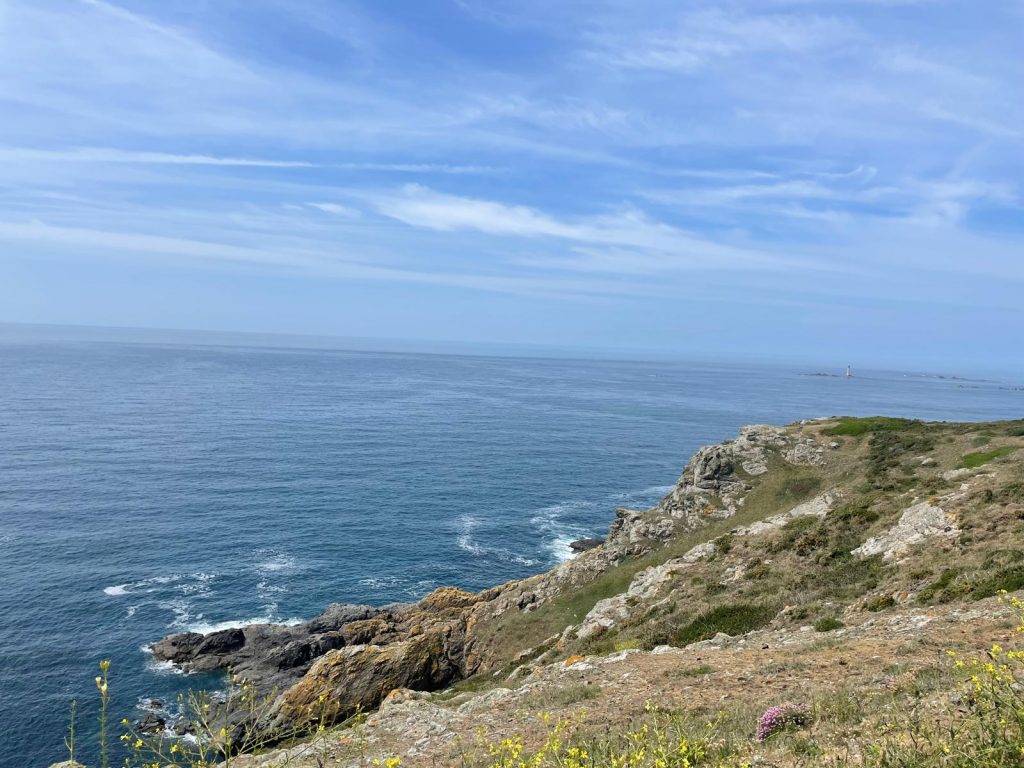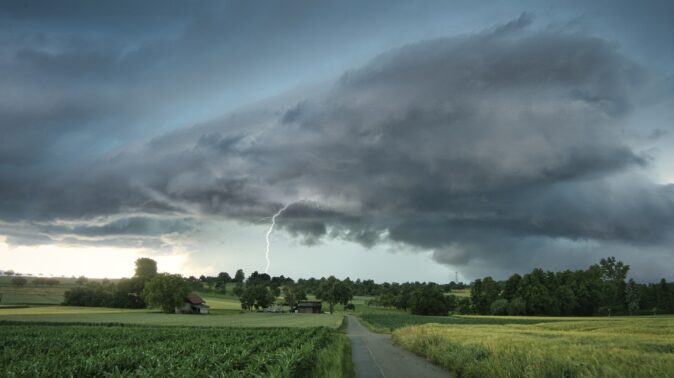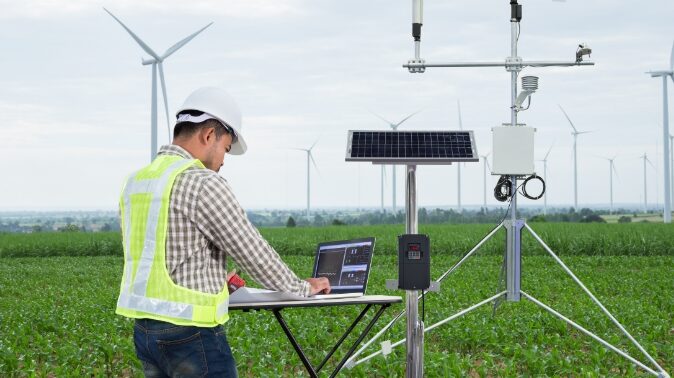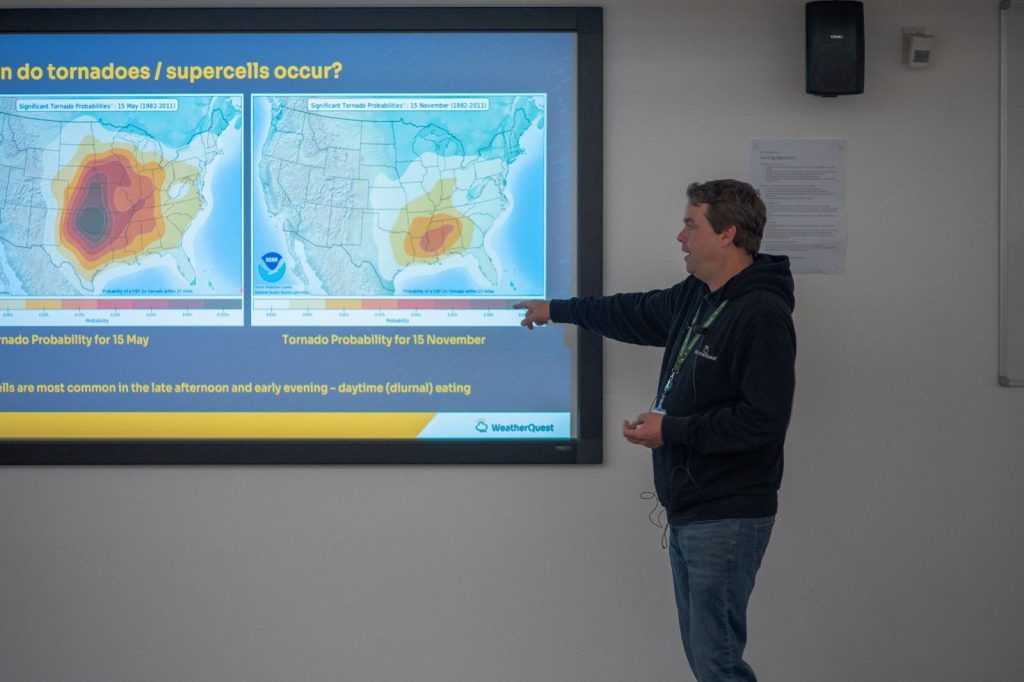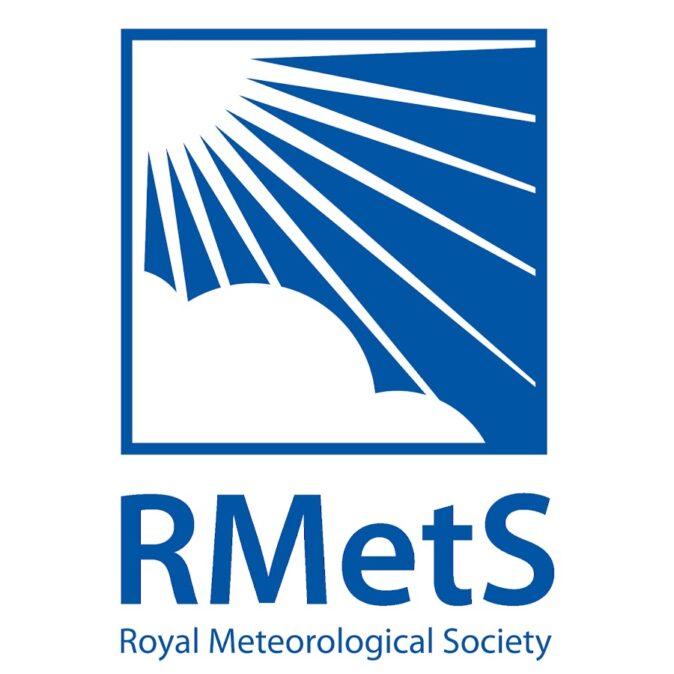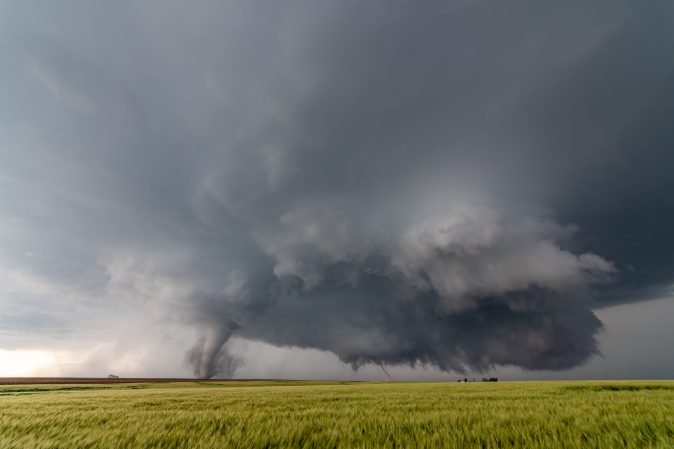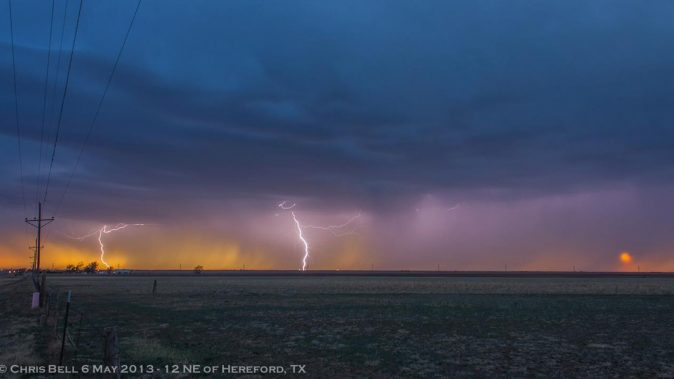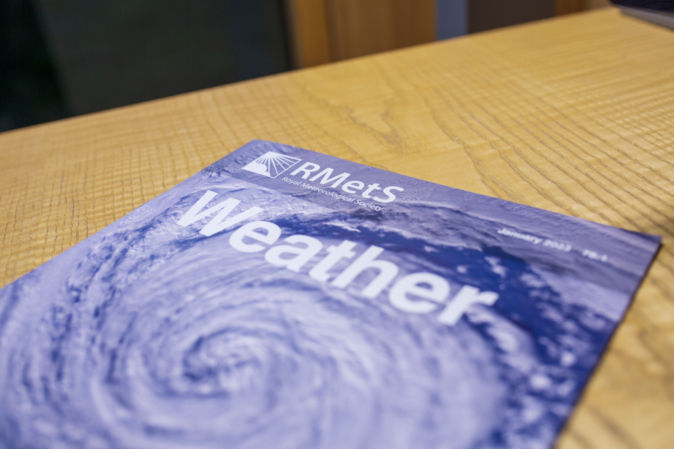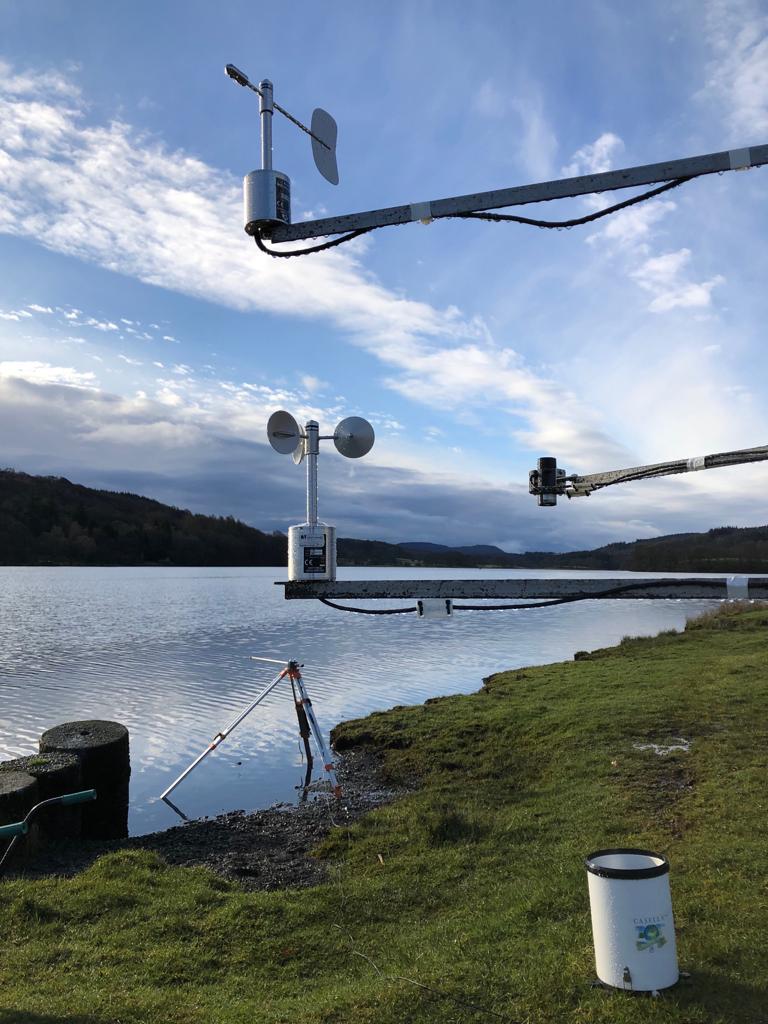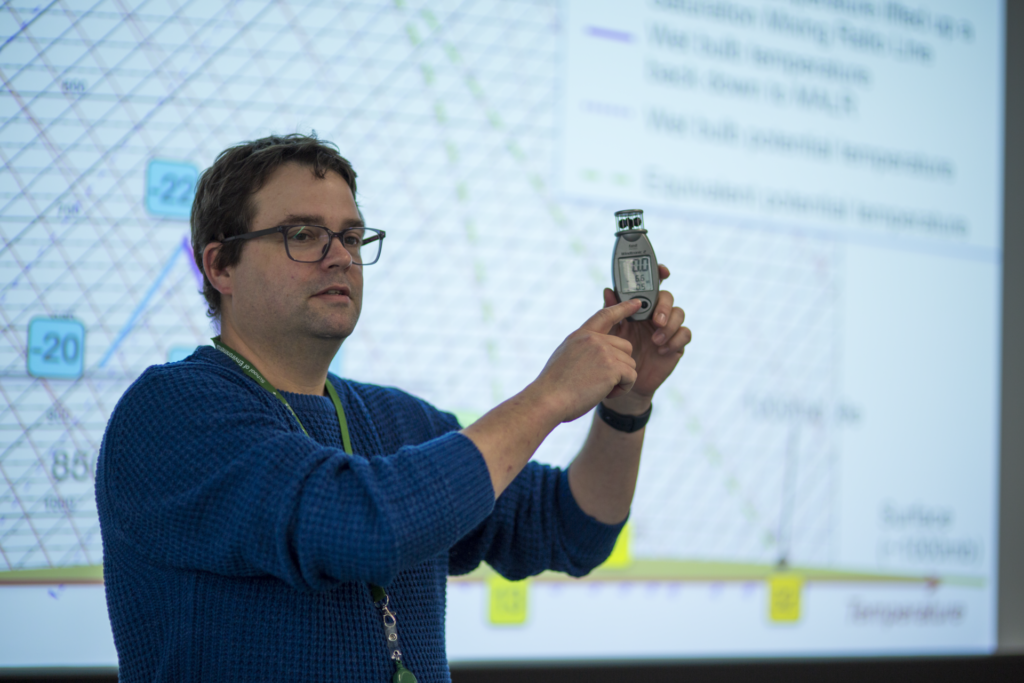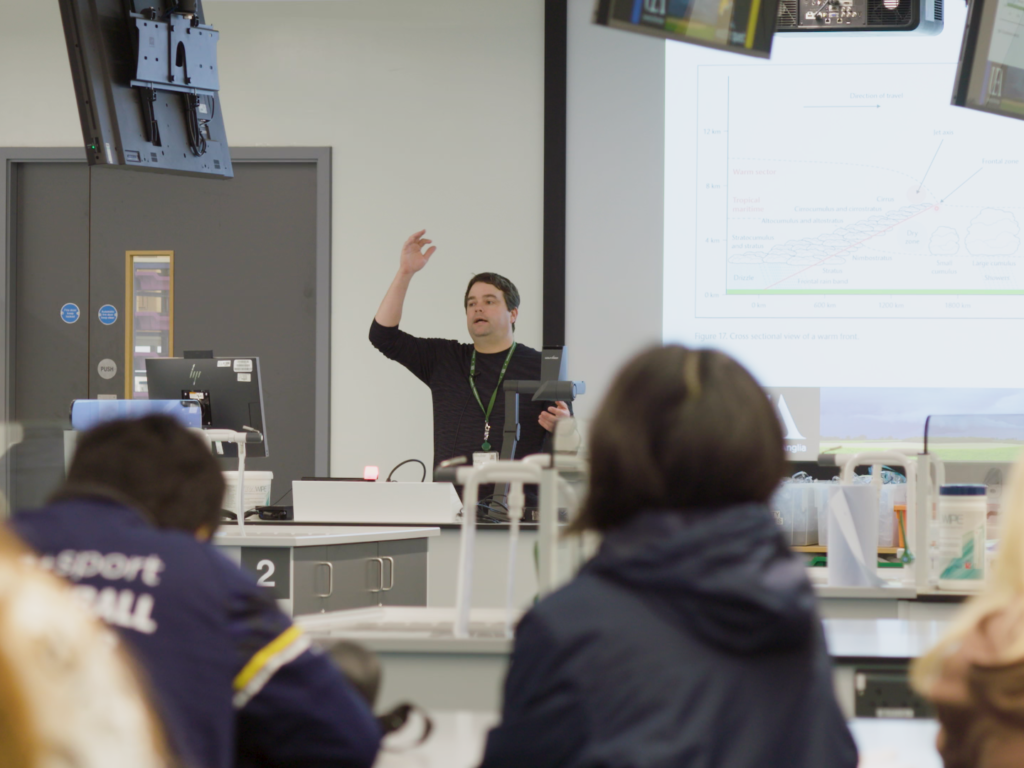What is the AMOC and why is it so important?
Ocean currents are incredibly important in maintaining climate stability around the world. One of the most important of these currents is the Atlantic Meridional Overturning Circulation (AMOC), which holds a vital role in the climate of the North Atlantic. Cold waters in the Arctic sink and flow southwards along the depths of the Atlantic, where they reach the Southern Ocean. Here, the circumpolar winds act as a “pump”, upwelling this water where it then begins to travel north. As the water does so, it gradually warms, providing areas such as the Caribbean and Gulf of Mexico with warm Sea Surface Temperatures. In the final leg of its loop, the current flows northeast across the North Atlantic (via the Gulf Stream), bringing warmer waters to Western Europe, before extending back up to the Arctic. This is one of the reasons the UK has milder winters relative to other countries at the same latitude.
The AMOC is also responsible for making the Atlantic one of the largest global carbon sinks. Upwelling from the deep ocean brings nutrients which supports phytoplankton and therefore photosynthesis at the surface, storing CO2 biologically. On top of this, the upwelling water is thousands of years old and contains far less CO2 than the surface water. When in contact with the atmosphere, this water absorbs large quantities of CO2 (DeVries and Primeau, 2011). These three climatic systems cement the AMOC as one of the most important global currents in the world.
Climate change and the AMOC
Among many statistical models, it has been forecasted that under global climate change, due to melting ice and warming global ocean temperatures, the AMOC will weaken and could even collapse and shut down by the mid-to-late-century. Due to the systems described above, this would have serious consequences for oceanic carbon uptake and heat transfer for regions around the world (Hu, 2025).
To further our understanding of the weakening AMOC, a joint Met Office and University of Exeter study by J. A. Baker et al. (2025) compared 34 CMIP6 climate models focusing on extreme greenhouse gas and North Atlantic freshwater forcing scenarios and their impacts on the AMOC. They found that across all models, the AMOC does not collapse, but levels off at differing weakened states depending on the model, and is sustained by the upwelling wind-driven “pump” of the Southern Ocean. Although this “pump” is modelled to strengthen in the chosen climate forcings, a Pacific Meridional Overturning Circulation (PMOC) begins to develop in the Indo-Pacific, taking away some of the volume of waters in the AMOC therefore weakening the overall circulation.
J. A. Baker et al. (2025) suggest the system is balanced by the water entering the circulation and the water leaving; in order for the AMOC to collapse, strong upwelling would need to be provided by another system, hence the development of the PMOC. The strengths of the PMOC from the models do not reach significant levels to completely compensate for a shut off the AMOC, hence only weakening it (Hu, 2025). Therefore, although an AMOC collapse this century is not likely, its weakening is dependent on the development of a PMOC, and how strong this circulation becomes.
Despite the findings that the AMOC may not collapse this century, even just a 50% weakening of the AMOC will still have massive global impacts due to the reduction in heat transport, nutrient circulation and carbon uptake of the ocean. Therefore, this modelled weakening must still be viewed as of high concern and the continued studying of the AMOC’s relationship to climate change is vital.
For more information, please visit the references below:
Baker, J.A., Bell, M.J., Jackson, L.C. et al. Continued Atlantic overturning circulation even under climate extremes. Nature 638, 987–994 (2025). https://doi.org/10.1038/s41586-024-08544-0
DeVries, T., and F. Primeau. Dynamically and Observationally Constrained Estimates of Water-Mass Distributions and Ages in the Global Ocean. J. Phys. Oceanogr., 41, 2381–2401 (2011) https://doi.org/10.1175/JPO-D-10-05011.1
Hu, Aixue. Atlantic circulation could be more resilient to global warming than was thought. Nature (2025). Available at: https://www.nature.com/articles/d41586-025-00300-2
